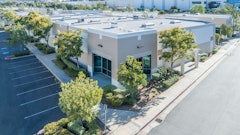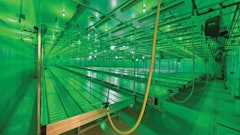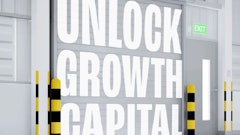
The cannabis sale-leaseback market faced its own unique challenges and changes in 2022. Despite the positive momentum throughout the year of new states legalizing adult-use and medical cannabis, as well as favorable commentary at the federal level, the U.S. volume-weighted average spot price of cannabis declined nearly 30% and the illicit market continued to outperform significantly in areas where the product had become regulated.
Furthermore, as interest rates increased in the broader market, cap rates in the cannabis sector, already relatively high compared to mature industries, continued to widen. Early-stage operators constructing facilities were not immune from inflationary and supply-chain pressures which both ballooned costs and delayed grow cycles.
For full the full year 2022, we estimate more than $200 million in sale-leaseback transactions were completed in the cannabis market. This includes Cresco Labs’ sale-leaseback of its 135,000-sq.-ft. Brookville, Penn., cultivation and processing facility with Aventine Property Group for $45 million in September. It also includes TILT's sale-leaseback of its 104,000-sq.-ft. Taunton, Mas.., cultivation, processing and dispensing facility with Innovative Industrial Properties for $40 million in May.
Activity registered across Arizona, California, Maryland, Massachusetts, New Jersey, Pennsylvania and Texas with transaction values ranging from under $5 million to more than $45 million. Facility types ranged from freestanding retail to large cultivation facilities.
Broader Trends
Within the context of the broader sale-leaseback market, 2022 was a tale of two markets.
We started the year at the tail of the best pricing environment in history, a robust M&A market and material capital availability. However, significant interest rate volatility throughout the year as well as broader macro shifts led to a widening of cap rates and a more cautious approach from investors.
Across the broader sale-leaseback sector, total U.S. sale leaseback transaction count and dollar volume reached record levels in 2022. The year displayed the highest annual sale leaseback levels in both transaction count (874 unique transactions) and dollar volume ($31 billion) since SLB Capital Advisors began tracking data.
This performance was achieved in the face of well-publicized macroeconomic headwinds including interest rate increases (10-year treasury up 236 bps over the year), decline in M&A activity (deal value down 22% vs. 2021 per Pitchbook), volatile swings in public stocks, complex geopolitical situations, hiccups in the leveraged loan market and a highly inflationary environment.
Investor Challenges
From the investor perspective, large public cannabis players experienced significant downward pressure on equity valuations, partially reflecting sector headwinds, but also operator difficulties and rent collection issues, increasing their overall cost of capital. Going into 2022, major cannabis investors cited compressing cap rates, in line with the broader product sector, however by the time the year came to an end, these cap rates have likely reverted to or exceeded previous levels for executable deals.
While in late 2021 into early 2022, cannabis and other investors found themselves at the height of optimism and a competitive market to win sale-leaseback deals, the combination of broader interest rate volatility and sector specific issues has caused parties to be “risk-off.” This has resulted in deeper diligence into company credit, capital availability as well as a bend towards larger scale MSOs and experienced operators.
While today’s interest rate environment is challenging to many industries, it is especially challenging for high-growth industries such as cannabis where there is a significant capital need today to drive growth tomorrow. In risk-off environment, cannabis players will experience further hunger pains. That being said, for operators with owned facilities, capital trapped in real estate can likely better be allocated to fund future growth. While in the current “risk-off” environment, sale-leaseback realizations will likely be reserved for experience operators of significant scale, as fundamentals return to normalcy, we anticipate nuanced operators taking advantage of capital locked up in real estate to fill the capital gap in order to fund future growth.
Dave Rosenberg is a principal with SLB Capital Advisors, which advises which specializes in sale leaseback transactions to fund buyouts and business expansion. Mr. Rosenberg has over 14 years of experience in investment banking and real estate, advising private and public companies on M&A, capital raises, corporate finance and capital structure.






















